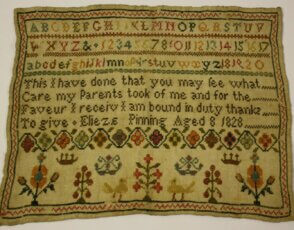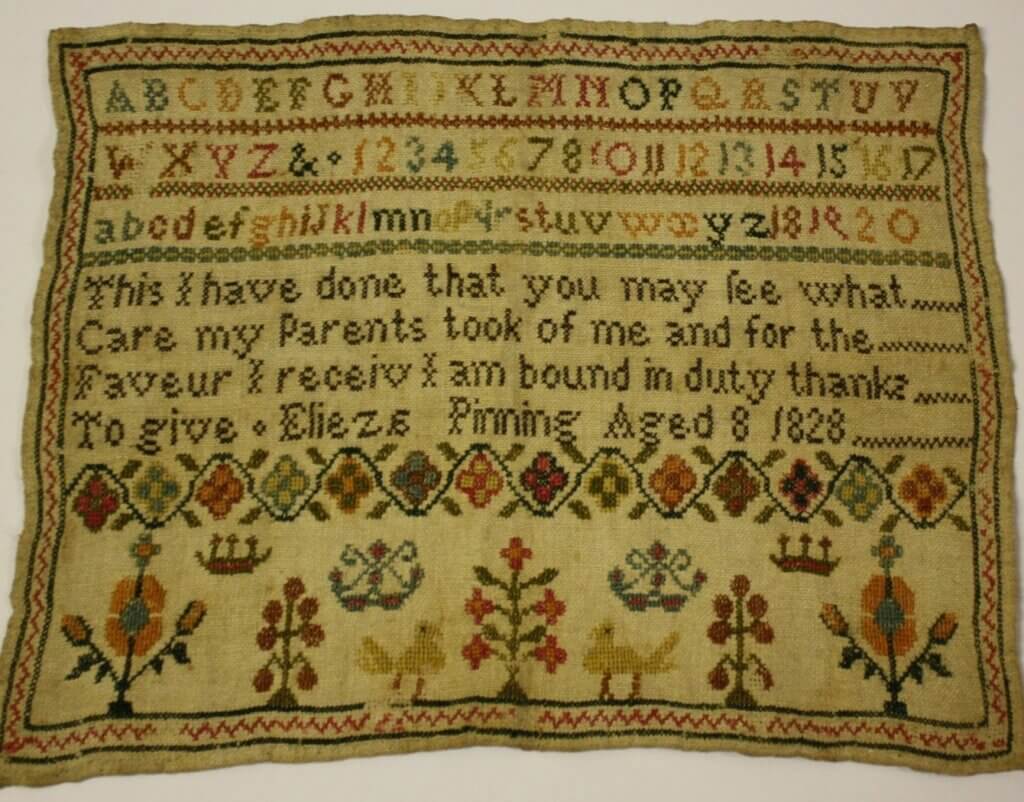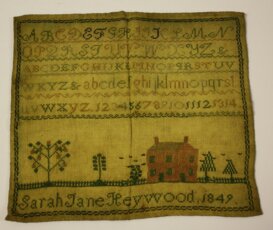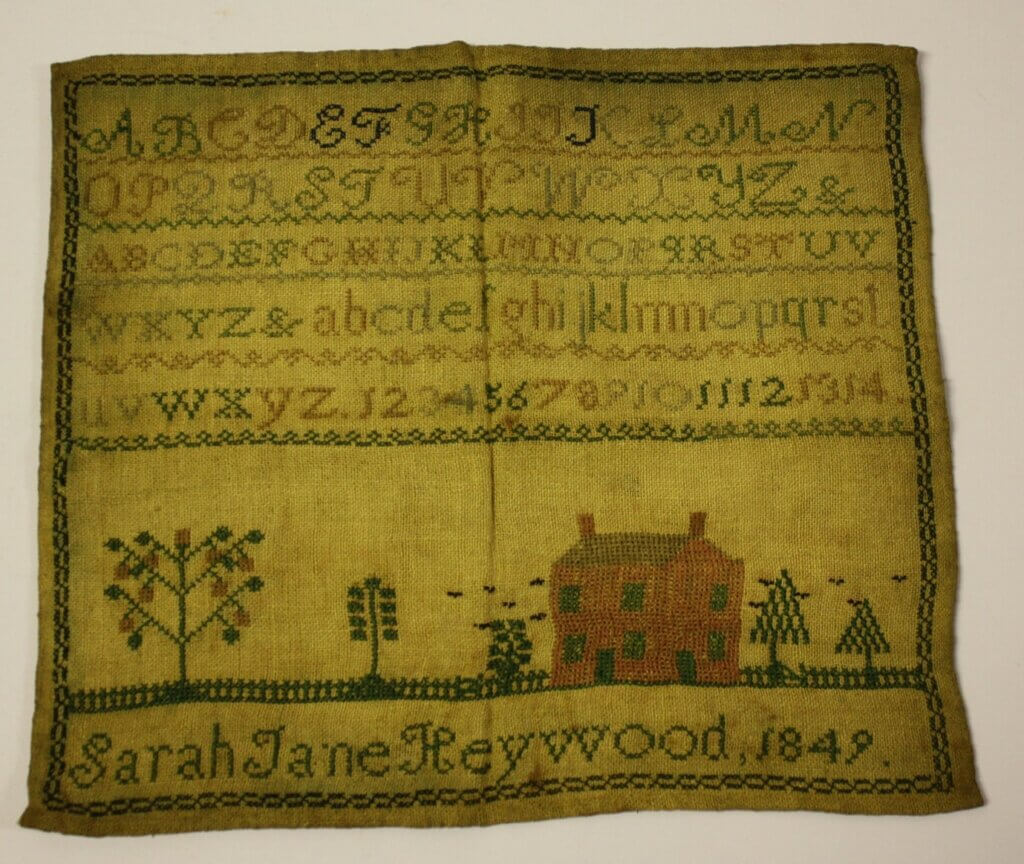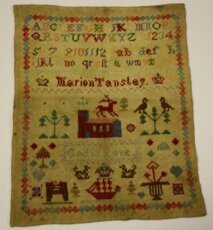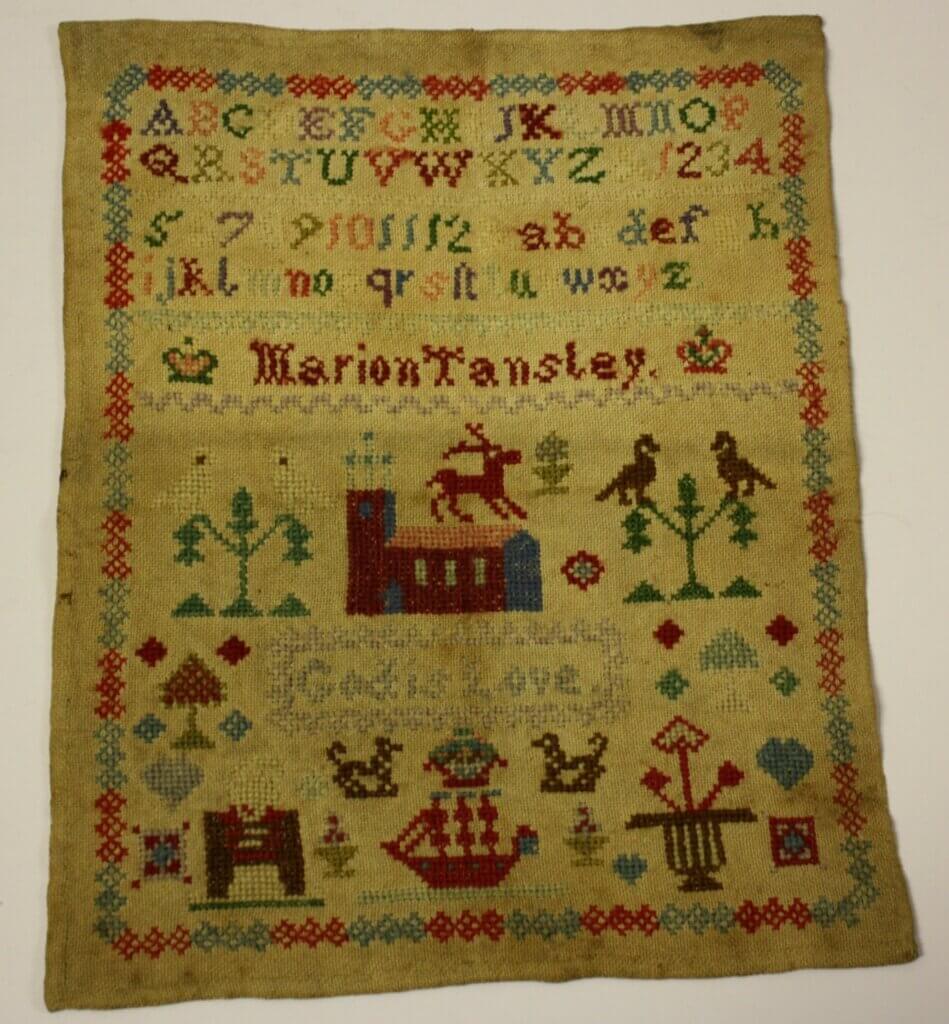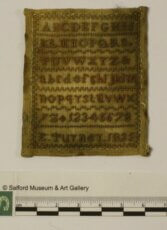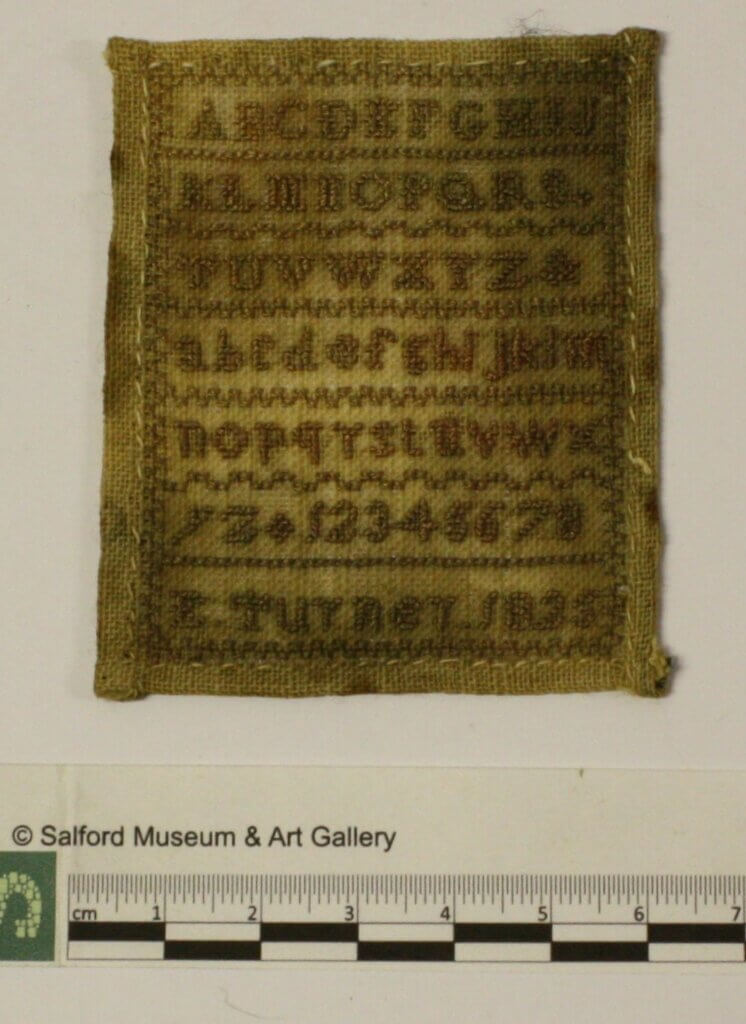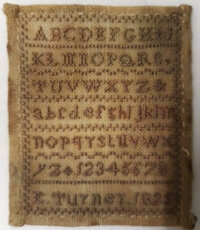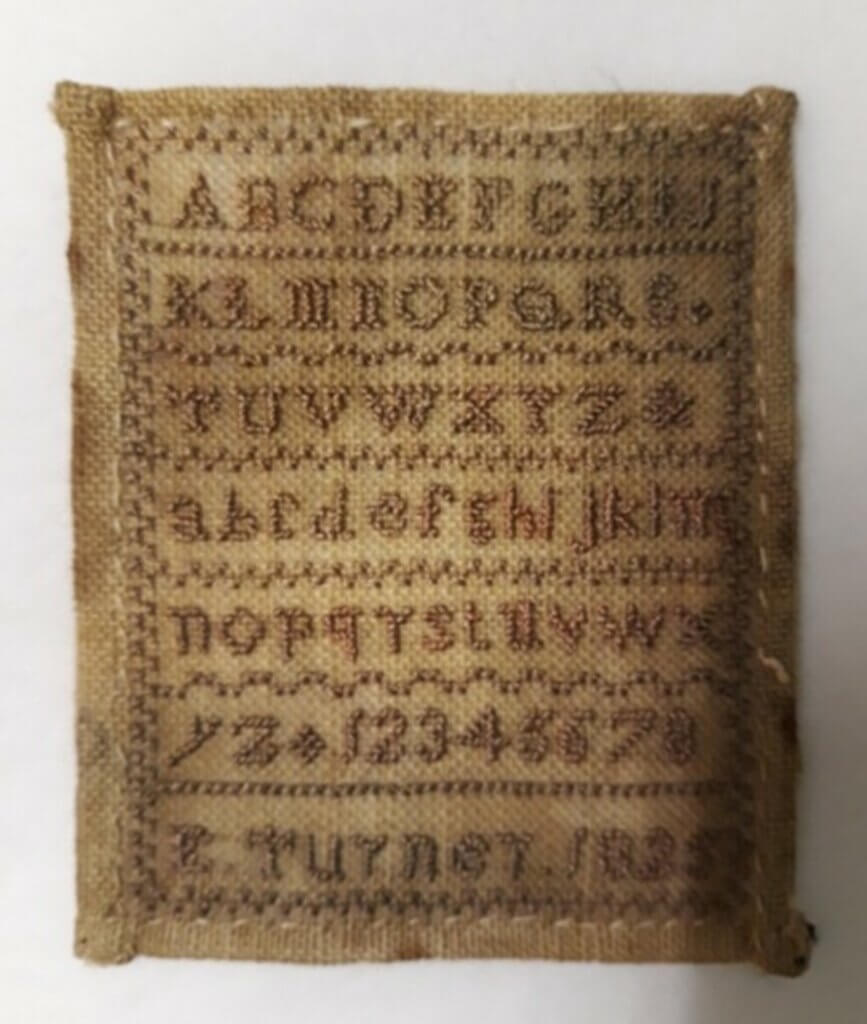Take a Closer Look
What do you think this object is?
What is it for?
What is it made of?
What can you learn about the person who made it?
What is a Sampler?
In the past, girls were taught to sew at a young age and samplers, like this, were often made in schools as a way for them to prove their skill at needlework. It was also an opportunity for them to practice their other knowledge like writing and counting. Embroidery takes a lot of skill and patience so being able to sew well was considered a sign of virtue in the 18th and 19th centuries.
Cross stitch is a type of embroidery that uses small X-shaped stitches to form a pattern. It is an easy way to decorate household items like bedsheets and tablecloths.
By the 19th Century, making samplers continued in schools, but had fallen out of popularity as a past-time. Schools mainly taught cross stitch.
Samplers can give us a lot of information about the person who sewed them. Since many women in history weren’t taught to read or write, they often used embroidery to share facts about themselves and where they lived, making maps or showing details about their houses. Even the materials they used can tell us about who they were. Expensive materials like fine silk and fancy thread were used by young girls from wealthy families. A woman’s sewing could show their place in society and samplers are good examples of this.
Activity 1
Design a Sampler
Imagine you couldn’t read or write. How would you tell someone in the future about your life? Using the examples above, design a sampler showing what is important to you. Think about what details you’d want someone in the future to know.
Collection Highlight
This miniature sampler is only 6cm wide and 7cm high, about the size of an egg! The person who made this must have been very skilled to sew so clearly at such a small scale.
Victorian Chores
Sewing has been used to mend and decorate cloth all throughout history. It was a chore that took a lot of patience and skill. Without electricity or indoor plumbing, lots of chores that we do easily today were much more difficult in the past.
Discussion
What chores do you have to do at home?
How would they be different without electricity or indoor plumbing?
Imagine you had to practice your chores in school, what kind of lessons might you have?
Would they be fun or boring?


